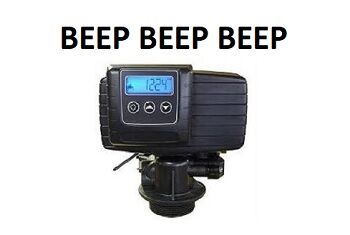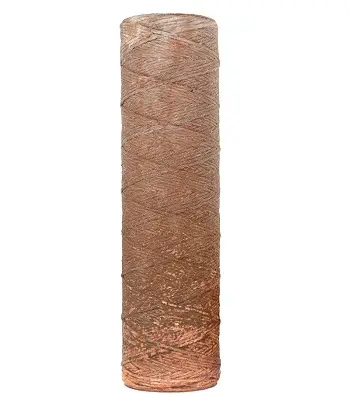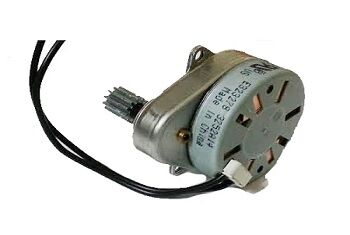You have noticed that your water softener is making some strange noises lately and you don’t want to wait until your water softener finally stops working because of whatever is making the noises. But you’re not quite sure what to do, how can you fix noises from a noisy water softener?
Noises from a water softener that are not due to normal operation can be fixed by replacing a motor, clearing an opening, clearing a computer error, replacing a worn seal or gear, correcting the water pressure, or securing a fitting or pipe.
A water softener will make some normal noises when it does its regeneration process to regenerate the water softener resin that it uses to make your water soft. It can also make some noises just because there is water flowing through it because water is being used in your home. But you can fix some unnecessary noises that are coming from your water softener.
What “NORMAL” noises you can expect to hear from your water softener.
Since a water softener is a mechanical device that has water running through it, it will naturally make some noises as part of its normal operation.
Electric motors will make a humming sound when they turn gears that move various parts of a water softener when the water softener performs a regeneration.
The sound of water rushing through openings inside of the water softener valve and out of the water softeners’ drain line will happen regularly whenever the water softener needs to regenerate its water softener resin.
You will hear these “NORMAL” noises on a regular basis when you happen to hear your water softener regenerating. This is a water softener doing what it is designed to do and these noises are to be expected.
Check out this quick video about NORMAL water softener sounds.
Even when a water softener is not regenerating, timer motors are still ticking away, impellers inside of the water softener valve are still metering your water usage, and water is still flowing through your water softener whenever water is used in your home.
These noises will normally be relatively quiet when the water softener is operating correctly, but you may notice them if you happen by your water softener in the middle of the night or just when everything else around is silent.
NON-NORMAL noises that you may hear from your water softener.
These noises do NOT always mean that there is a problem with your water softener.
When a moving part of a water softener wears, it may start to make noise that it did not before or the noise that it normally would make may change or get louder.
In many cases, a part of the water softener has worn or is simply not working as well as it once was. Hearing an odd noise from your water softener does not necessarily mean that you need to replace your water softener.
A beeping water softener does NOT always mean a broken water softener!

Although a beeping noise coming from your water softener is generally not considered to be a “NORMAL” noise, it is usually just an alarm letting you know that the water softener needs some attention.
Many computerized water softeners now have the ability to alert you that the salt in the brine tank is getting low by displaying the alert “Low Salt” and activating a beeping sound to get your attention so you will know to add salt to your water softener brine tank.
Since many people like to have preventive maintenance done on the appliances in their home, some water softeners even have the ability to alert you that it is time for your water softeners regular servicing.
There can be other reasons why a water softener will beep, and sometimes it may be to alert you of a real problem, but most of the time a water softener beeping does not mean there is a problem, it may just want to remind you to add salt to its brine tank.
Common “NOT NORMAL” noises that may be an easy fix.
- Clicking
- Screeching or Howling
- Grinding
- Clunking or Hammering
- Whistling
| Type of noise | Probable Cause |
| Clicking | Drive/Timer Motor advancing This does NOT necessarily mean that the motor is not working correctly, some motors make a clicking noise even when they are working just fine. |
| Screeching or Howling | Commonly due to a worn moving part not moving smoothly or irregular water pressure. It may not become a problem for a long time but check for a clogged pre-filter. |
| Grinding | Often caused by a drive motor struggling to advance the piston of the water softener. The water softener may be stuck in regeneration and running constantly, which may need attention soon. |
| Clunking or Hammering | Most likely caused by irregular water pressure in the plumbing of your home. Pipes or connectors may be shaking, but should not be an immediate problem. |
| Whistling | Air getting into your plumbing, or water struggling to flow through your water softener. Check for clogged pre-filter. |
How to fix a “Clicking” noise from a water softener?
A “Clicking” noise from a water softener is most often coming from a drive or timer motor.
These small motors can make a clicking noise even when they are working correctly, but the clicking noise can get louder when the motor gets old and is not working as smoothly as it once did.
Just because a timer motor is clicking does not mean that it needs to be replaced, but if the timer motor stops working or if the clicking noise gets louder, it may mean that the timer motor needs to be replaced.
This is quite easy to do. On most water softeners, you will only have to unplug the water softener, remove two screws, un-twist two wires, and then replace the motor.
A “Clicking” noise from a water softener can also be caused by a broken gear tooth.
Unfortunately, a broken tooth on a gear often means that there is a problem elsewhere on the water softener.
In many cases, simply replacing the gear will only be a temporary fix at best! A tooth will often break off because the gear was trying to move another part that did not want to move freely.
Because a water softener often uses a single-piston to control its regeneration process, if that piston stops moving smoothly, the gear tooth will break before other larger parts of the water softener.
In many cases, you can replace the piston of the water softener along with the broken or slipping gear for a very reasonable cost and it is quite easy if you are a reasonably decent do-it-yourselfer.
You will need to replace the piston as well as the seals that surround the piston and apply a little lubricant on the seals to ensure that the new piston moves smoothly through the seals.
How to fix a “Screeching” or “Howling” noise from your water softener?
A “Screeching” or “Howling” noise coming from your water softener is often due to mechanical parts that are not moving smoothly within the control valve or improper water pressure to the water softener.
When moving parts do not move smoothly, they can scrap or grind against the surfaces that they are moving against.
The piston of a water softener moves back and forth over and over and eventually, it may have trouble moving smoothly and therefore can create a “Screeching” or “Howling” sound as it rubs against the surfaces that it is in contact with.
Can you fix a noisy water softener piston?
In some cases, you can remove a noisy water softener piston and then clean, lubricate and replace it to get it to stop making noise.
The problem is, once the piston has gotten to the point where it is making noise, it has probably been struggling to move freely for quite some time and will be very hard to remove without breaking it.
The piston on a Fleck or Clack valve is relatively easy to get at, and if you’re careful, you should be able to slowly remove the piston so you can lightly clean it and use some silicone-based lubricant on the seals to allow it to move easier in the water softener.
If you attempt to remove your noisy Fleck piston and the piston and seals are not salvageable, they are not very expensive to replace.
What to look for if incorrect water pressure is causing a screeching or howling noise.
Insufficient water pressure or excessive water pressure to a water softener can cause air to get drawn into the control valve which can create a “Screeching” or “Howling” noise as the air passes through the valve.
A piston or other moving part of a water softener that is making a “Screeching” or “Howling” noise can be lubricated to alleviate the noise but it is often more beneficial to simply replace the moving part so that it does not affect the performance of other moving parts in the control valve.
Insufficient water pressure is most likely due to a clogged water pre-filter before the water softener.

Changing or cleaning your whole house water filter will allow optimum water flow for your water softener and will usually eliminate a “Screeching” or “Howling” noise coming from your water softener.
Here’s a quick video on how to change your whole house filter cartridge.
If you have a municipal water supplier, your water softener may have excessive water pressure going to it which can make noise as well.
A pressure regulator that is no longer functioning correctly can allow much higher water pressure to your water softener than is necessary.
High water pressure can force water to pass seals within the water softener valve and will make a “Screeching” or “Howling” noise as the water sprays through the control valve.
A build-up of hard minerals, iron, or sediment in the plumbing leading into your water softener can cause enough water restriction to create a “Screeching” or “Howling” noise as the restricted water flow goes through the water softener valve.
Replacing or clearing the restriction in the plumbing should alleviate the problem.
How to fix a “Grinding” noise on your water softener?
A “Grinding” noise from a water softener is often caused by a drive motor trying to move worn parts inside of the water softener control valve.

In some cases, the drive motor itself will be making the “Grinding” noise and will need to be replaced.
In other cases, the main piston of the water softener will need to be replaced due to wear and tear over the years causing the piston to make a “Grinding” noise as it moves roughly through the control valve.
When your water softener is making a grinding noise, there can be more than just one part causing the problem. I highly recommend doing a simple overhaul of the control valve.
On many water softeners, this will require the replacement of the piston and seals along with the brine valve. DON’T WORRY! Overhauling your water softener control valve is MUCH easier than you may think!
Here’s a short video on how to re-build a very common water softener valve.
All you need to do a basic rebuild of a water softener valve is the correct replacement parts.
How to fix a “Clunking” or “Hammering” noise from your water softener?
A “Clunking” or “Hammering” noise is not usually caused by the water softener itself. It is most likely due to the plumbing going into and out of the water softener.
The plumbing in your home and the fittings connecting your plumbing to your water softener can vibrate and shake when the pressure of the water flowing through it changes.
If your plumbing is not secured properly or the fittings of your water softener are not properly secured, they can shift when the water pressure changes causing a “Clunking” or “Hammering” noise when it moves.
Securing your plumbing to the wall or ceiling will often eliminate this noise, and making sure that the fittings of your water softener are in straight and securely will prevent them from knocking around and creating a “Clunking” or “Hammering” noise.
How to fix a “Whistling” noise coming from a water softener?
A “Whistling” noise coming from your water softener is almost always due to air getting drawn into your water softener because of water being restricted as it goes through your water softener.
This can be caused by loose-fitting allowing air to pass by the fitting seal and into the water softener or possibly air being drawn from your home’s well line.
Check the fittings going from the plumbing of your home to your water softener and the brine tubing and fittings going from your water softener brine tank to your water softener control valve.
Carefully tighten any loose connections and look for worn tubing where cracks may occur allowing air to be drawn into the water softener.
If you do not find any areas where air could be entering your water softener, contact your local plumber or well specialist to determine if there could be a crack in your home’s well line.
To Sum Up!
A water softener will make different noises at different times and most of the noises that you will hear will be perfectly normal. But if you hear a sound that you have never heard before, there may be a repair needed.
Identify what kind of noise that your water softener is making, search for the source of the noise, and then decide if it is something that you can repair yourself.
Many noises that may come from your water softener will not need repair and may just be your water softener working normally.


I have been purchasing the same salt pellets for years. Is it possible to buy a bad batch of salt. Reason for asking is, that these pellets seem to create a thick viscus which is binding the pellets of which I have to break up. I do not remember this ever happening to this extent.
Thanks for your time.
Hello Mr. Ressler and thank you for the question.
I think that you are correct about getting a bad bag of salt pellets.
It’s not so much that the pellets are “bad” but it might simply be because the pellets are very old or have been exposed to humidity which has caused the adhesion which bonds the salt into a pellet form has broken down and therefore is falling apart when it is submerged in water.
If you have only noticed this from 1 or 2 bags, I wouldn’t worry about it. But you may want to skim off any extra broken down pellet mush from inside the tank because it will settle to the bottom of the tank and can continue to build up into a hard block of salt overtime.
I hope this was helpful.
Paul